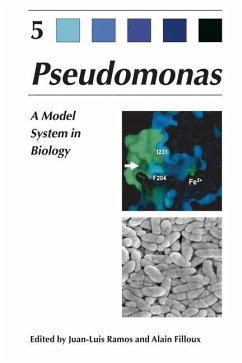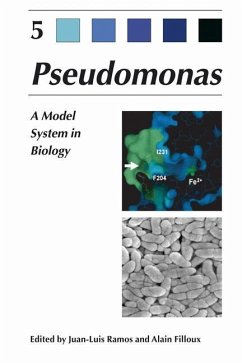
Coronaviruses
Molecular Biology and Virus-Host Interactions
Herausgegeben von Laude, Hubert; Vautherot, Jean-Francois

PAYBACK Punkte
20 °P sammeln!
Coronaviruses represent a major group of viruses of both molecular biological interest and clinical significance in animals and humans. During the past two decades, coronavirus research has been an expanding field and, since 1980, an international symposium was held every 3 years. We organized the yth symposium for providing an opportunity to assess important progresses made since the last symposium in Cambridge (U. K. ) and to suggest areas for future investigations. The symposium, held in September 1992, in Chantilly, France, was attended by 120 participants representing the majOlity of the ...
Coronaviruses represent a major group of viruses of both molecular biological interest and clinical significance in animals and humans. During the past two decades, coronavirus research has been an expanding field and, since 1980, an international symposium was held every 3 years. We organized the yth symposium for providing an opportunity to assess important progresses made since the last symposium in Cambridge (U. K. ) and to suggest areas for future investigations. The symposium, held in September 1992, in Chantilly, France, was attended by 120 participants representing the majOlity of the laboratories engaged in the field. The present volume collects 75 papers which were presented during the yth symposium, thus providing a comprehensive view of the state of the art ofCoronavirology. The book is divided into 7 chapters. The first chapters gather reports dealing with genome organization, gene expression and structure-function relationships of the viral polypeptides. New sequence data about as yet poorly studied coronaviruses - canine coronavirus CCY and porcine epidemic diarrhoea virus PEDY - are presented. Increasing efforts appear to be devoted to the characterization of products of unknown function, encoded by various open reading frames present in the coronavirus genomes or delived from the processing of the large polymerase polyprotein. Due to the extreme size of their genome, the genetic engineering ofcoronavi'uses through the production of full length cDNA clones is presently viewed as an unachievahle task.














